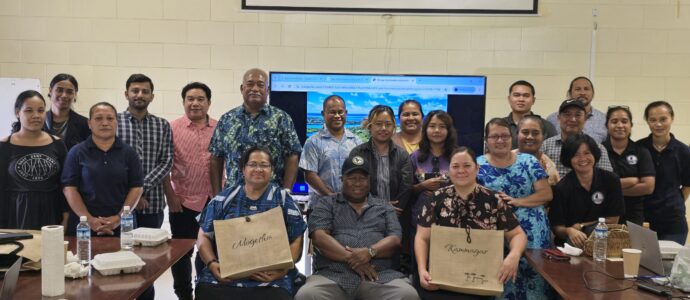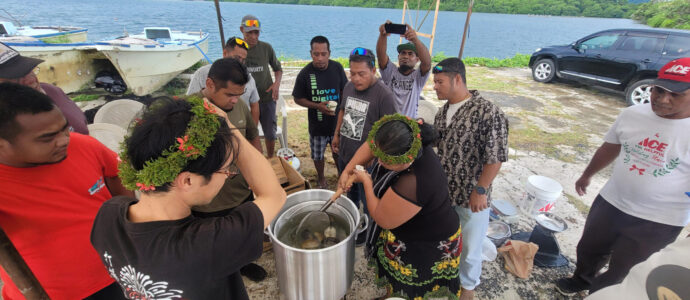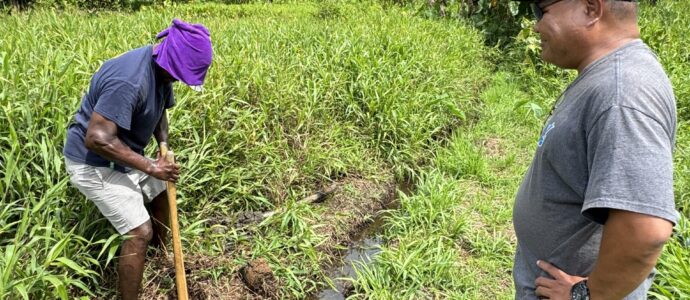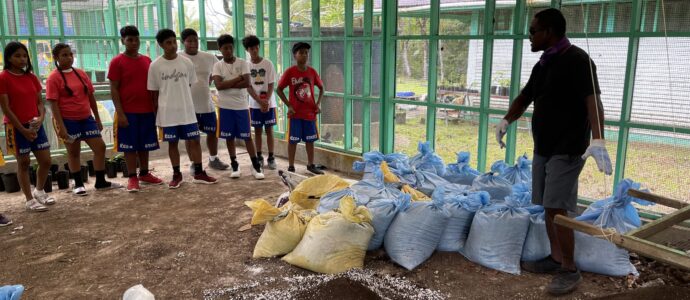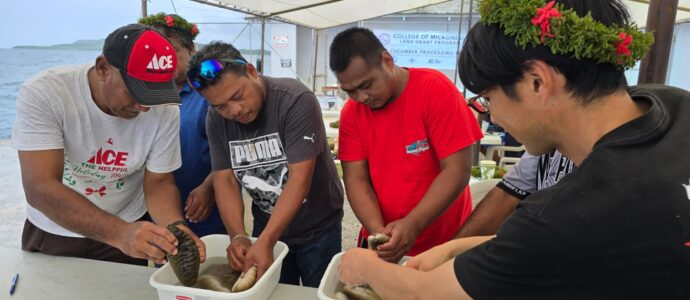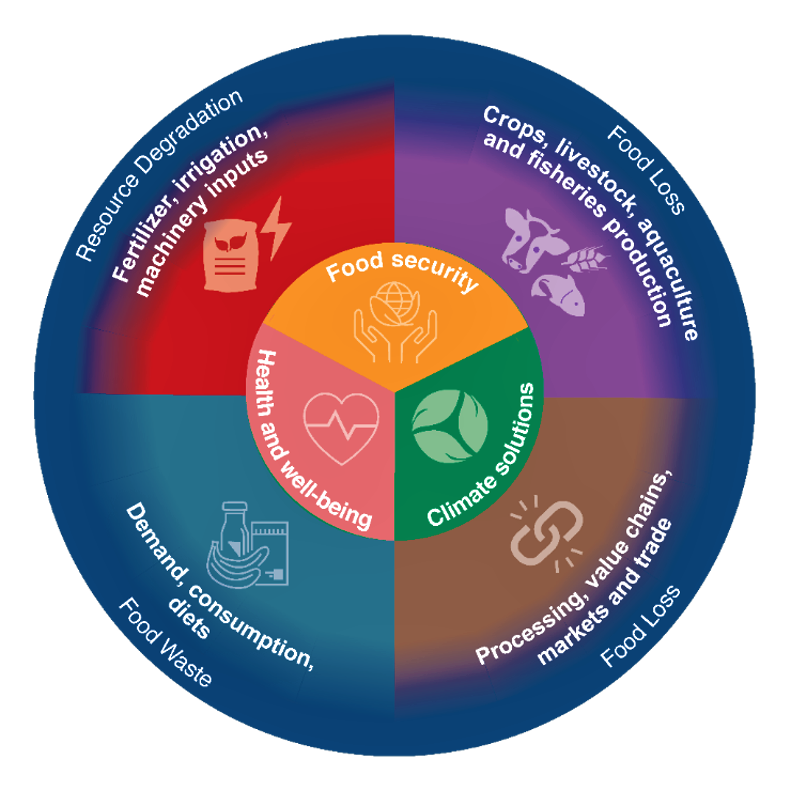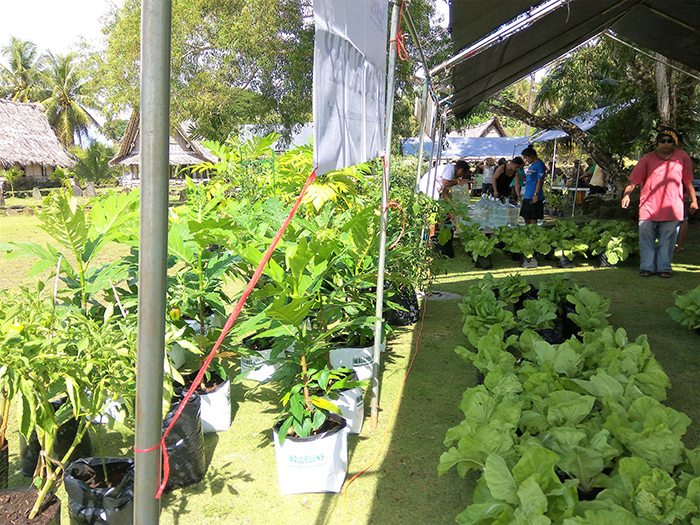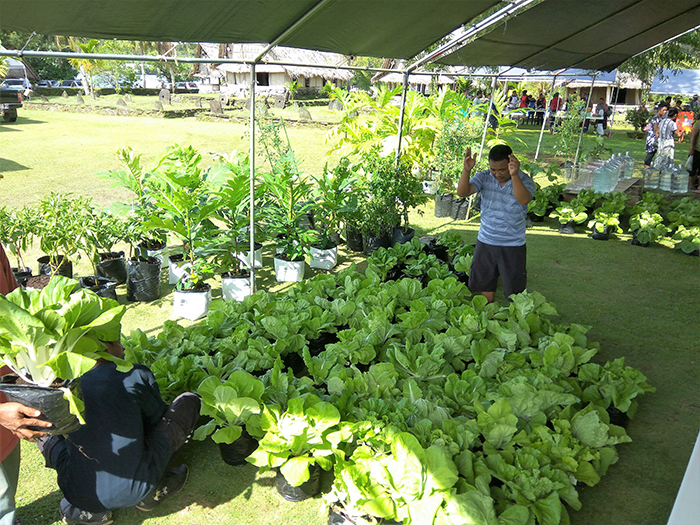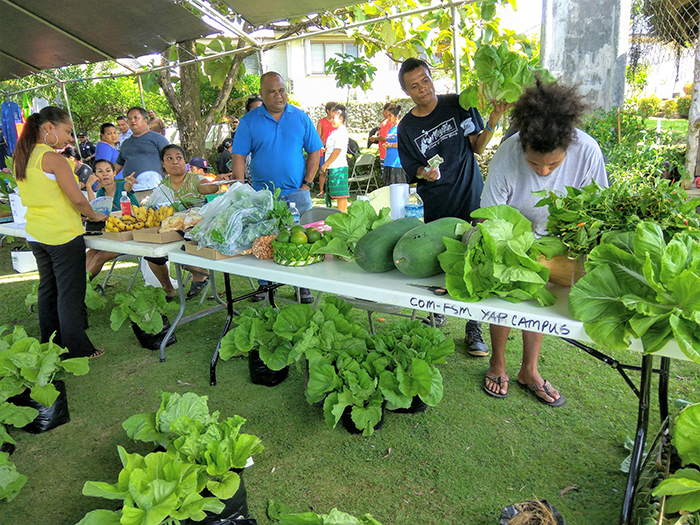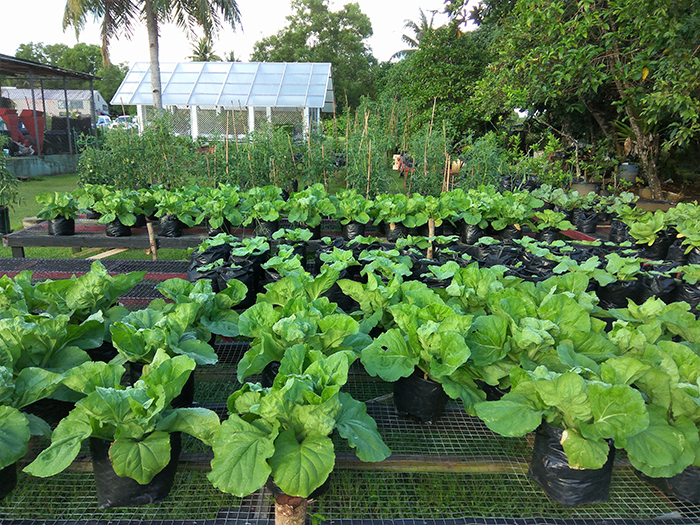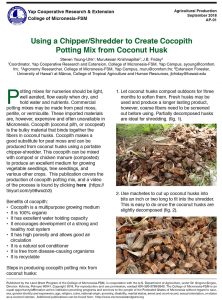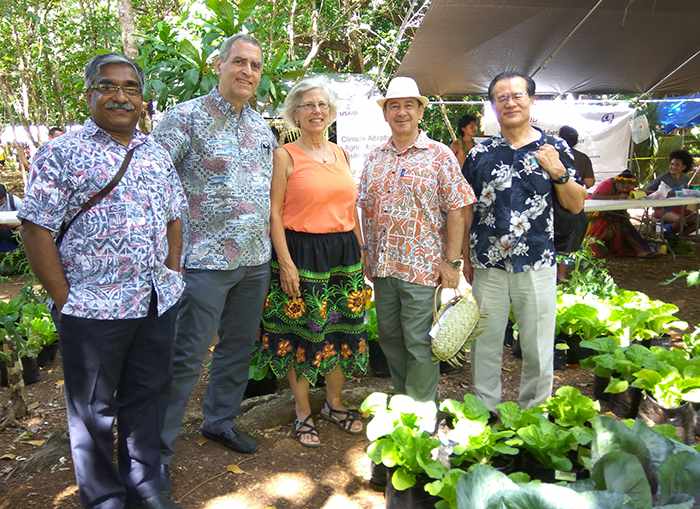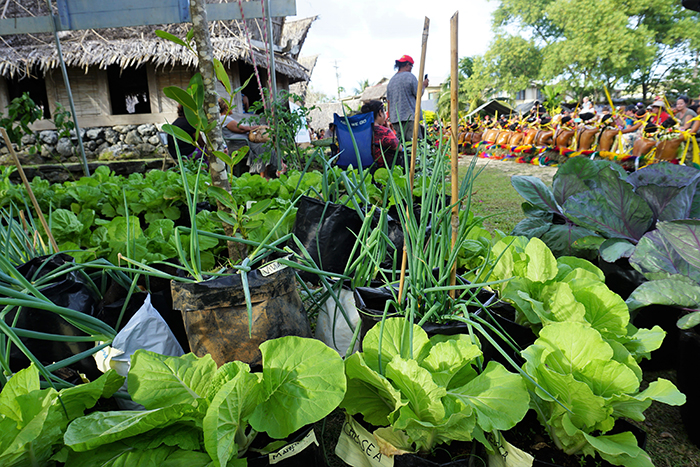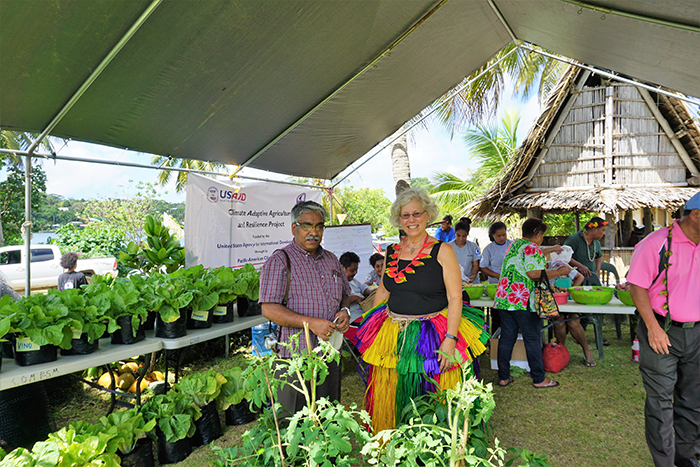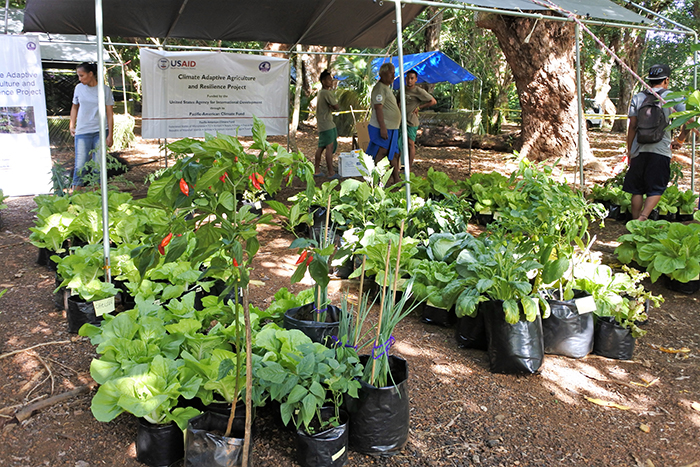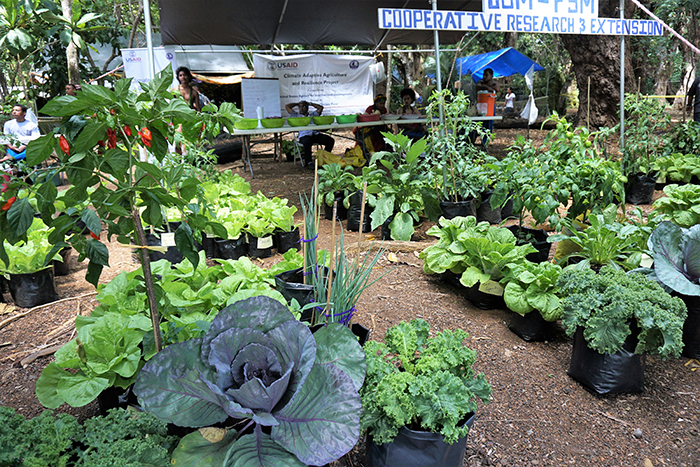During their attendance at the Plan of Work meeting in Yap from February 10-17, 2024, PCC Land Grant Vice President Dr. Christopher Kitalong, along with Director Lyndon Masami, Senior Extension Agent Elchung Hideyos, and Field Assistant McKnight McArthur, was involved in a climate change demonstration project. Elchung and McKnight demonstrated and trained CRE staff from FSM and RMI on using this all-in-one soil probe device. This soil probe measures weather, soil, hydro’s, salinity, etc. data. This data from the probe will help improve agriculture management practices and contribute to the long-term productivity and sustainability of taro cultivation systems, especially in the face of climate change. McKnight did a demonstration training on how to build the probe for the other islands. Elchung gave a presentation explaining the different parts of the soil probe, and she was also able to train the other extension agents on how to use the app to collect data and access the cloud. PCC-CRE already has 10 probes installed all around Palau from Kayangel, Ngeremlengui, Melekeok, Airai, Ngermid, Ngerbeched, Peleliu, Angaur, and even Hatohobei. This trip to Yap added the number 11th probe. Expanding this tool to the other CREs in FSM and RMI will give us a better understanding and comparison of taro cultivations in the Micronesian region to support our community in the face of climate change.
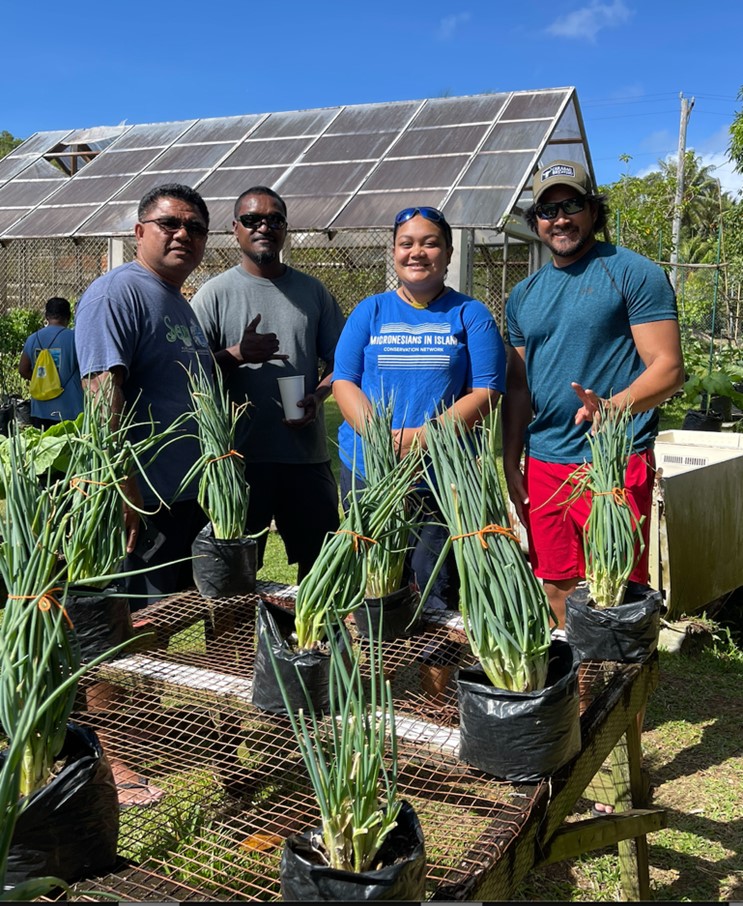
(PCC staff pictured from left to right: Director Lyndon Masami, Field Assistant McKnight McArthur, Senior Extension Agent Elchung Hideyos, and Vice President Dr. Christopher Kitalong)
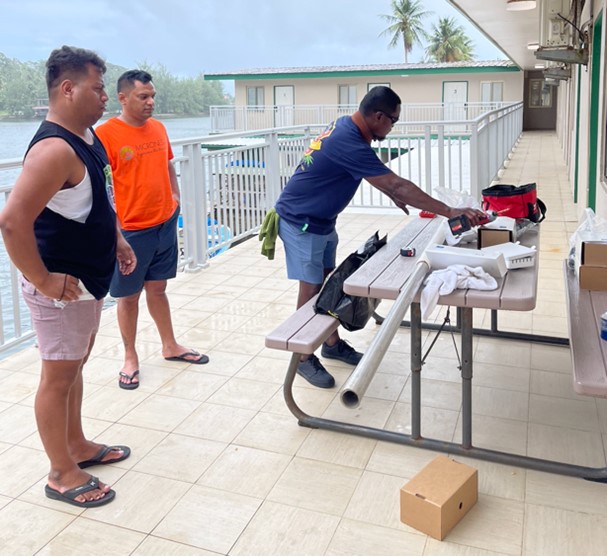
(Field Assistant McKnight McArthur (center), demonstrating how to set up the soil probe to Senior Extension Agent Lajkit Rufus (middle) and CMI Food Technology Researcher Tebio Tamton )
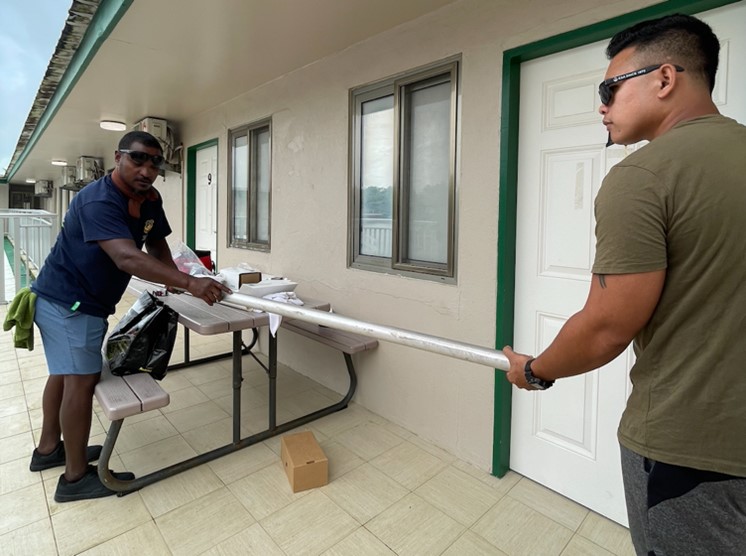
(Field Assistant McKnight McArthur (left), demonstrating how to set up the probe to COM -FSM Pohnpei CRE Coordinator Trisden Elias (right))
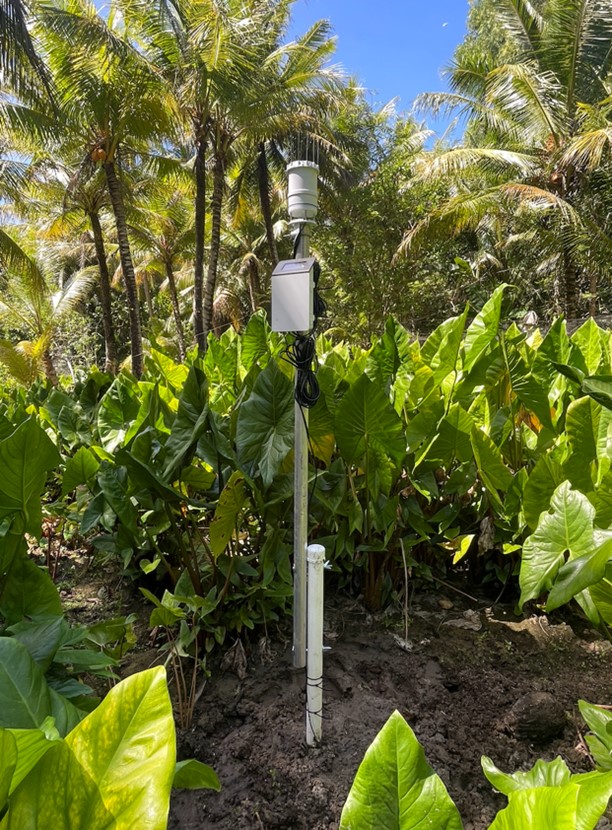
(Installed Soil probe in a Taro patch in Yap)

